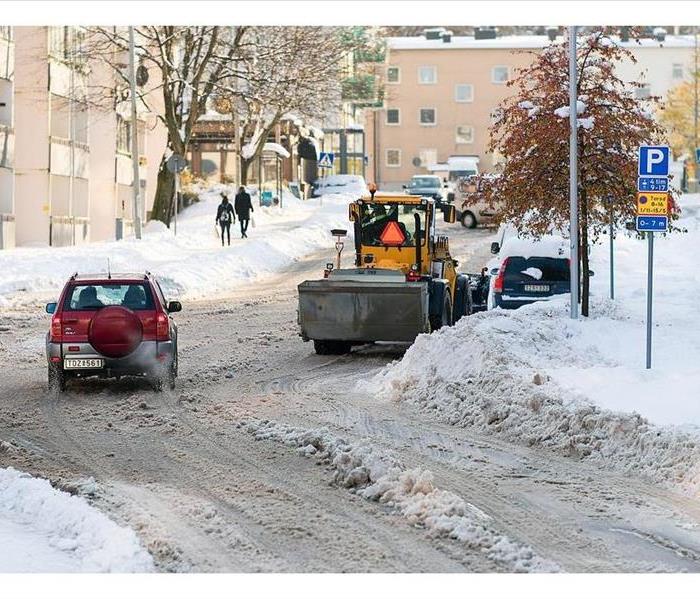Prepare your business for possible disasters.
12/29/2022 (Permalink)
When you are a business owner, one of the most important factors to think about is emergency preparedness.
Disaster are going to happen, and while having a plan in place cannot stop all disasters, it can still offer a certain sense of security and at least ensure that your employees are aware of what to do if a disaster or emergency situation should occur.
What’s Your Plan?
Please take the time and make it a priority to sit down and work out an emergency preparedness plan for various disaster situations that could affect your business!
There are numerous emergencies your business should have a preparedness plan in place for, including:
- Fire
- Severe weather, including thunderstorms and winter storms
- Other natural hazards like floods, hurricanes, tornadoes and earthquakes
- Human-caused hazards, including accidents or acts of violence
- Technology-related issues like power outages and equipment failure
When disaster strikes, it doesn’t matter if it’s a man-made incident or natural, if no emergency plan is in place for your business, things could get even more stressful quickly.
You should make sure that safety training and familiarization of emergency preparedness plans are included in the company onboarding process, team-building activities and continuing education opportunities. By encouraging your employees to familiarize themselves with proper safety protocol and emergency procedures, you’re not only giving them the tools to protect themselves, but you are also setting them up to help protect guests/visitors and the business itself.
Where to Begin
In beginning to set up an emergency plan for your business, start by evaluating which scenarios are most likely to occur—and go as far as considering the longshots that could still happen. After all, it’s better to prepare for all the worst-case scenarios and not be caught off guard.
There are plenty of online resources to help guide you through this process, including Ready.gov, the American Red Cross, FEMA and the CDC.
If you have a business impact analysis (BIA) done, it will help predict potential effects a disaster may have on your business. This would include lost or delayed sales and income, increased expenses from repairs, and delayed implementation of business plans. Don’t forget to make sure a crisis communications plan is in place, too.
Once you have come up with an emergency preparedness plan, be sure to review it and practice it with employees. Reviewing and rehearsing various scenarios can help ensure the process remains fresh in their minds and can help employees feel more empowered.
Disaster can strike when you least expect it, but by being prepared and having a plan in place, your business will be better suited to handle whatever Mother Nature has in store. If the worst should happen and your business is damaged, know that SERVPRO® of Western Essex County is here to help make it “Like it never even happened.”






 24/7 Emergency Service
24/7 Emergency Service